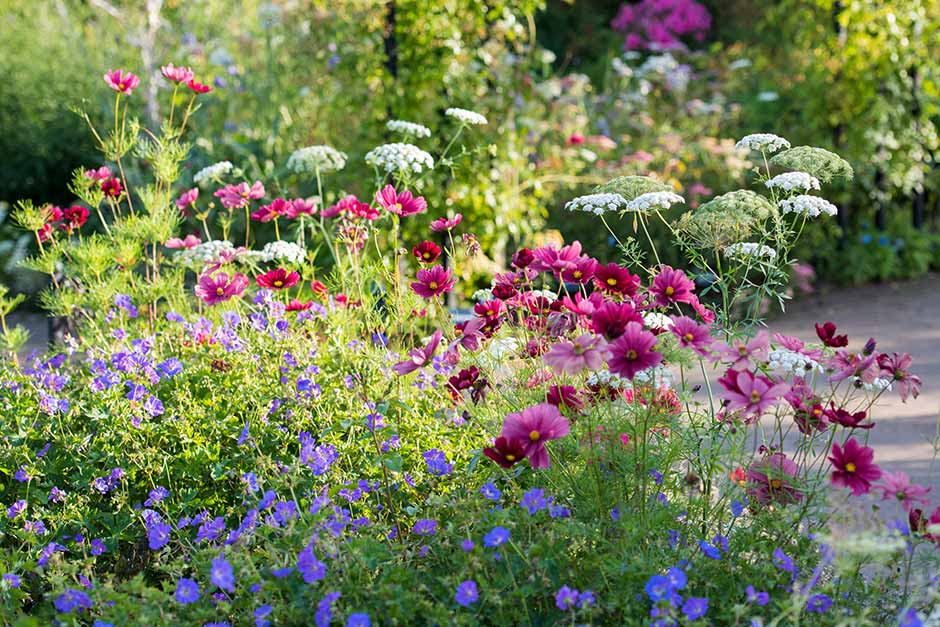
Introducing...
Annual and biennial salvias
Botanical name: Salvia
Common name: Painted sage, clary
Often boldly-coloured, annual salvias are excellent for plugging gaps in summer borders or in large containers with other annuals. Biennials can be taller and are useful for giving height to borders. They’re easily grown from seed in spring and will produce seeds that you can collect and sow for a display in future years.
Looks
Often with larger flowers than other types, these salvias produce densely packed spikes in bright red or shades of pink, purple and blue, including pastels. Some flowers combine two colours.
Likes
Annual and biennial salvias like plenty of sun, with protection from wind.
Dislikes
Will struggle if not given enough room to grow, so check the plant label for expected width and space plants accordingly.
Did you know?
Salvia viridis (annual clary) makes a good cut flower. It's blue, white or pink blooms, with distinctive veined bracts, are borne on sturdy stems that have a long vase life and dry well.
Growing guide

How to grow salvias
All the information you'll need to grow & care for salvias in your garden – including advice on growing conditions, planting, feeding, watering, deadheading, pruning, overwintering and propagating.
Annual and biennial salvia we recommend
Salvia sclarea 'Vatican Pink'
Turkestan clary 'Vatican Pink'
- 0.5–1 metres
- 0.1–0.5 metres
Salvia sclarea 'Vatican Pink'
Turkestan clary 'Vatican Pink'
- 0.5–1 metres
- 0.1–0.5 metres
Useful advice

Cut flowers: growing and selection
Hardy annuals: sowing in spring
Seed: collecting and storing

How to grow annuals and biennials
Get involved
The Royal Horticultural Society is the UK’s leading gardening charity. We aim to enrich everyone’s life through plants, and make the UK a greener and more beautiful place.